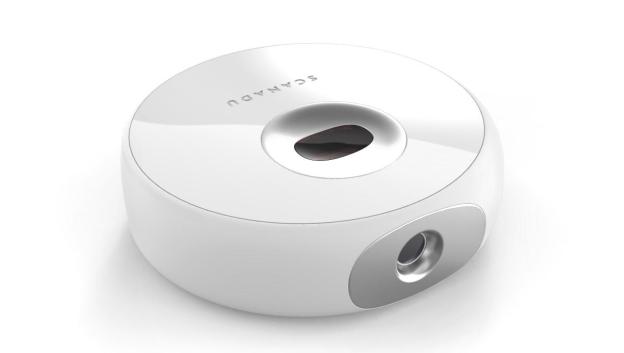
Exploding through a $100,000 funding goal on Indiegogo in less than two hours, the Scanadu Scout is a medical gadget that allows users to measure their vital signs and send that data to their smartphone. Conceptually similar to the fictional tricorder issued to medical Starfleet officers in the Star Trek series, the Scanadu Scout can provide measurements of a user’s heart rate, blood pressure, temperature, respiratory rate and oxygen levels in the blood. This data is transferred to an Android or iOS smartphone wirelessly over Bluetooth 4.0.

It could also be useful when attempting to improve overall health by adding regular exercise and healthier eating habits to a daily routine. Users could track improvements in their vitals over time as they make an attempt to get in better overall shape.
Regarding battery life, the Scanadu Scout can be used a few times a day for approximately one week before requiring a recharge. The device simply plugs into any USB port or USB electrical plug using the included micro-USB cable. The device can be cleaned using a disinfecting wipe or moist towel. However, the Scout isn’t waterproof.
Within the promotional video, Scanadu CEO Walter de Brouwer mentioned that the idea for the Scout came to him after his own son spent extensive time in the hospital. Brouwer kept a close eye on the machines monitoring his son’s vitals during the recuperation process. After his son started getting better, Brouwer wished he could continue checking the vitals on his own in order to make sure his son’s condition remained stable. The Scanadu Scout puts all that data in the palm of a user’s hand, definitely ideal for other parents that want to monitor vitals of a sick child.

This simply means the FDA would find the device isn’t harmful to users and will be used for research purposes only. Outside of the United States, the Scanadu Scout could be extremely useful in impoverished countries when medical equipment isn’t readily available.
There are a multitude of contribution levels on the Indiegogo project page, but the base price to get started with the Scout is $199. There are also bulk options for families as well. The Scanadu Scout will be manufactured within the United States and the estimated delivery date of the device is currently March 2014. At this time, the development team has raised over a quarter of a million dollars with thirty days still left in the campaign. As with all projects on Indiegogo and Kickstarter, be aware that manufacturing issues could delay the delivery date of the device.


